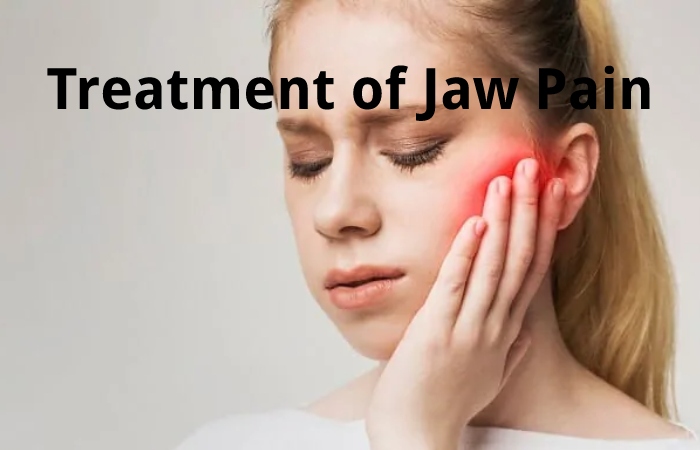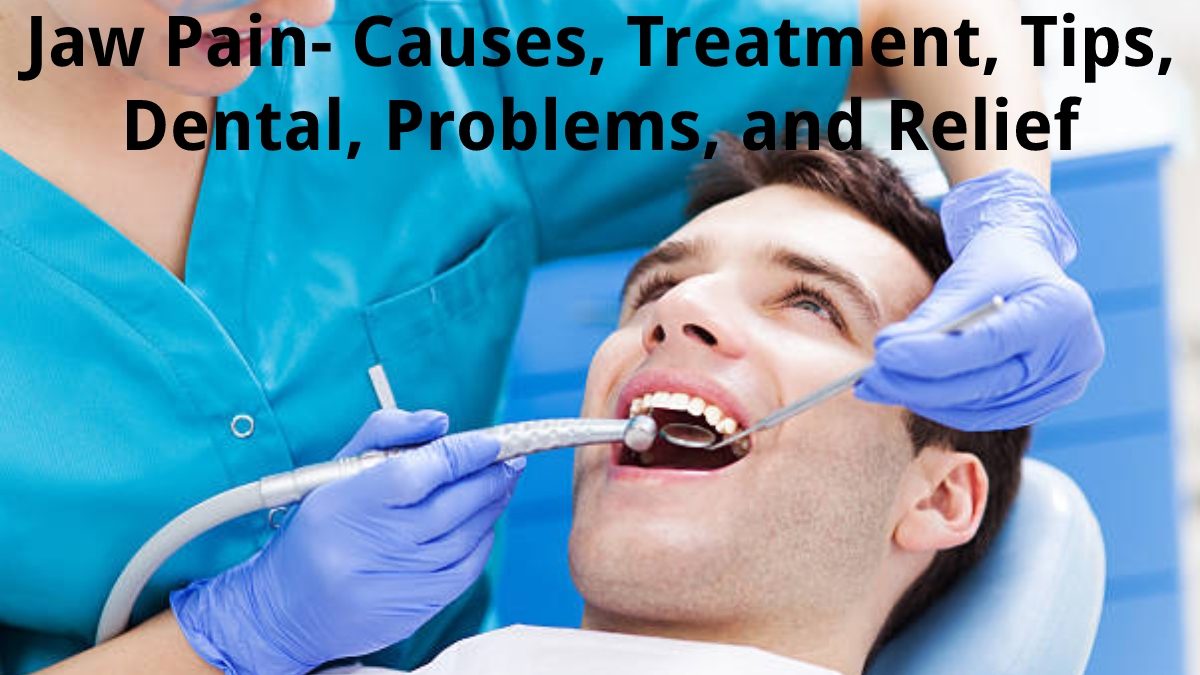Table of Contents
Jaw Pain
The jaw pain can be due to many other causes, from a bone fracture to an abscess in an infected tooth (what we popularly known as phlegmon), but in these cases, the pain is a symptom of a different and easily identifiable pathology; not the problem (chronic pain) itself.
When none of these problems exists, jaw pain is usually a symptom of a pathology in the temporomandibular joint. The temporomandibular joint (often abbreviated as TMJ) is the joint that, like a double hinge on both sides of the face, connects the jaw to the skull and allows us to move the mouth up and down and to the sides when we chew or chew. We speak.
Causes of Jaw Pain
Several factors influence jaw pain, especially when it is chronic. Stress is one of the most frequent and is commonly associated with bruxism, the habit of grinding the teeth, especially at night.
This pathology not only causes continuous discomfort to the patient, from jaw pain to the neck and head, but it can also cause severe wear on the tooth enamel, and reconstruction with dental caps or veneers is necessary.
jaw pain, jaw pain
Jaw pain can also be due to skeletal bite problems such as prognathism or retrognathism, which make it very difficult for the patient to close their mouth correctly. These pathologies are solved through interventions that combine maxillofacial surgery with orthodontics
Treatment of Jaw Pain

When jaw pain is not attributable to one of the maxillofacial problems we have just described, there are different ways to deal with jaw pain, depending on each patient and the cause of their pain.
When there is a pathology of the TMJ, the most common thing is that your dentist prescribes a discharge splint, also called myorelaxation or neuromuscular reprogramming, because its function is precisely to prevent the patient from introducing the muscles in states of tension. For these splints to be effective, the patient must ensure that they are used regularly and regularly go for check-ups to observe their progress.
What Causes Jaw Pain and how to Treat it?
Here we tell you the most likely causes of jaw pain.
1. TMJ Illnesses
Temporomandibular joint (TMJ) illnesses touch the combined that connects the jaw to the skull. A disc separates the bones at this joint and helps it move correctly. However, if the disc becomes misaligned or the joint is damaged, you may experience pain and other symptoms on one or both sides of your jaw.
Other symptoms of TMJ disorders include:
- tenderness around the jaw
- earache
- pain, a snapping, or grating sensation when opening the mouth or chewing
- difficulty opening and closing the mouth if the joint becomes locked
- Various factors can contribute to TMJ disorders, so finding a specific cause is not always easy.
Problems known to impact TMJ disorders include:
- arthritis
- clench or grind your teeth
- tissue injury
- tooth damage or misalignment
- jaw contagion or injury
- damage to the cartilage in the joint.
If you have TMJ illness signs, talk to your doctor or dentist to discover the underlying cause.
2. Sinusitis
Inflammation in the nasal cavities can cause sinusitis. This tends to happen after you have a cold, but allergies and other medical conditions can also contribute to sinusitis.
Other symptoms of sinusitis include:
- nasal congestion that makes it difficult to breathe through the nose
- yellow or green mucus coming from the nose or throat
- pain, pressure, and swelling in the face
- stress and pain in the ears and head.
- fatigue
- difficulty smelling or tasting.
Sinusitis often goes away on its own, but it might be worth checking with your doctor if it lasts for more than a week.
Dental Problems of Jaw Pain
Pain on one side of the jaw is often attributed to dental or oral health problems.
Common dental glitches that cause jaw pain include:
- caries
- an abscessed tooth
- growth of wisdom teeth
- gum disease or tooth decay
- missing or misaligned teeth
- grinding or clenching of teeth.
If dental problems are the cause, you’ll likely have additional symptoms, such as:
- tooth pain that persists or comes and goes
- sensitive teeth
- pain and blood in the gums
- mouth sores
- persistent bad breath or dry mouth.
Uncommon Causes of Jaw Pain
These rare problems can cause pain on one side of the jaw. If there’s no apparent reason for the pain, your doctor will likely want to rule out these causes.
1. Trigeminal Neuralgia
This chronic condition usually results from abnormal pressure on the trigeminal nerve. This pressure can prevent the nerve from working correctly and cause severe pain. An injury or abnormality in the brain can also cause the condition.
Trigeminal neuralgia is more shared in women and people over 50. The main symptom is severe pain on one side of the face.
This pain could:
- occur when you trace your face or move your facial muscles, even minimally
- produce sharp stabbing or a pounding sensation
- feel constant pain or burning
- cause spasms in the face
- happen in episodes that last from seconds to minutes
- occur on the lower jaw, cheek, or mouth
- become more severe over time.
The pain is for a short time but excruciating. It may not get better with over-the-counter medications, but your doctor may recommend other treatments, including prescription medications.
2. Osteomyelitis
Osteomyelitis is a rare but severe type of bone infection that develops when bacteria enter the bone. For example, the jawbone may become infected after dental surgery if there is a series of dental health problems or wound to the mouth. Diseases that affect the immune system can also increase the risk.
This contagion can feast and cause jawbone demise. Rapid action with antibiotics can help stop thoughtful problems, so it’s energetic to get medicinal attention if you have:
- sharper jaw pain
- fever
- swelling or tenderness in the teeth or jaw
- redness or increase warmth in the painful area
- tiredness or fatigue
- bad breath
- difficulty opening and closing the mouth due to pain and swelling
- numbness in the jaw, lips, or mouth.
Tips for Relief of Jaw Pain

You may not need medical treatment if you have mild or temporary jaw pain. If the cause is not severe, the pain usually improves once the problem goes away.
In the meantime, these methods can help you control it:
Heat: The heat helps relax muscles and can help relieve pain and stiffness.
Ice or cold compresses: It can help numb pain and could be particularly benefit if you’re also experiencing swelling.
Over-the-counter pain relievers: Acetaminophen (Tylenol), ibuprofen (Advil), and other over-the-counter pain relievers can help relieve pain temporarily. Be sure to shadow the dosage instructions on the container. If the recommended dose does not allow you or you need to take pain relievers for more than a few days, it is best to consult your doctor.
Rest your jaw when possible: Selecting foods that don’t requirement much chewing can help avoid straining your jaw muscles.
Massage: A doctor, physical therapist, or massage therapist can use massage therapy to help relieve jaw pain and tension. You can also learn to use some techniques yourself. In addition, they can be accommodating for TMJ disorders.
Try to relax: If your jaw pain comes from grinding or compressing your teeth, relaxation techniques can help prevent you from continuing to do so as a stress response. In addition, relaxing the muscles can help relieve pain.
Change your position when sleeping: If you always sleep on the same side or with your hand under your jaw, you may put pressure on your muscles. Switching which side you sleep on could ease your pain. Even if the pain has a different cause, sleeping on the other side may help relieve pain at night.
When to see a Doctor
While jaw pain isn’t always severe, when specific symptoms accompany it, it could indicate a more serious condition that requires treatment. In addition, you may want to see your doctor or dentist if the pain persists for more than a few days or seems to go away and come back. For example, if you experience the following symptoms, you may need to seek the opinion of a medical professional:
- trouble eating, drinking, swallowing or breathing
- pain that makes it difficult to move your mouth as you normally would
- swelling or fever that does not go away
- a severe pain that suddenly goes away after a blast of salty liquid that tastes and smells unpleasant
- Hight fever, extreme pain, or bulge that affects your ability to breathe and swallow are severe symptoms that require immediate treatment.
Conclusion
Jaw pain is often described as an uncomfortable, throbbing pain. It can happen suddenly or start mild and get more intense over time. However, the exact symptoms will vary depending on the underlying cause. Therefore, identifying the underlying problem is the first step in treating this condition. Here are some reasons that should be analyzed.

